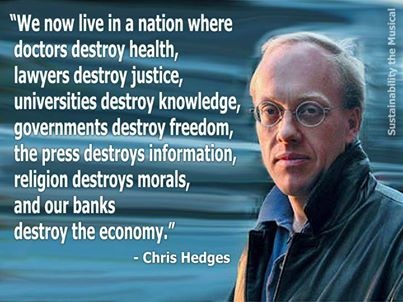Therapists and teachers often describe their approach to psychotherapy as a system or method, such as cognitive-behavioral or psychoanalytic. Many other approaches, when you look into them, are some sort of inspired hybrid, such as Emotion-Focused Therapy, Internal Family Systems or Acceptance and Commitment Therapy. My approach to therapy, like my approach to consultation with therapists, doesn’t rely on a system or a method, although it is methodical and systematic in its own way. It places experience, and the observation of experience by client and therapist, first. In my work with each client in psychotherapy, and each therapist in consultation, I am focused on exploring the experience of the client, the experience of the therapist, and the experience of the therapeutic pair. This is a highly reflective process, and it includes the exploration of behavior and its meaning. Psychologist George Kelly–a teacher of one of my teachers–said, “Experience is not what happens to us, it’s what we do with what happens to us.”
I had a very unusual introduction to psychotherapy, because of coincidences (or, if you prefer, luck, or grace) in my life. While still an undergraduate at Goddard College, in Plainfield, Vermont, I met, and became an apprentice to, Eugene Eliasoph, MSW, LCSW, co-founder and co-director of the New Haven Center for Human Relations. Gene was a therapist, psychodramatist and leader of therapy and personal growth groups. For a year, II was able to participate in Gene’s groups, along with licensed therapists and Yale post-docs, and receive undergraduate credit for an off-campus field experience. Goddard’s educational philosophy, influenced by John Dewey, prioritized experiential learning and the role of students in pursuing what they wanted to learn, on campus and off. Even then, I was finding my own way.
Psychodrama, for readers unfamiliar with it, is a way of exploring situations in our lives, in groups, by acting them out rather than talking about them. The person whose situation is being explored is the “protagonist,” the leader is the “director,” and group members play the various people involved in the situation. There is a role in psychodrama called “auxiliary ego,” which Gene often asked me to play. The auxiliary ego, also called a “double,” is sent by the director to join with the protagonist (or other member of the psychodrama) and express what the person might be thinking or feeling, but not saying. This was part of my introduction to psychotherapy. The experience of the person I was doubling with was more important than any theory, method, concept or system. My task wasn’t to label what the person was struggling with, or analyze how they were doing it, it was to find my way into the person’s experience and express it in a way that helped move the exploration forward.
In his other therapy and personal growth groups, Gene included me as a “model member,” who was there to learn and participate authentically. Gene had a lot of knowledge and experience about facilitating therapeutic and personal learning in groups, and later became President of the American Society for Group Psychotherapy and Psychodrama. His focus was always on the experience of the people he was working with, and he had a way of being and working with them that helped them feel encouraged and secure enough to explore issues that might otherwise have felt too vulnerable and disorienting to get into. He had psychoanalytic training, at both Austin Riggs and William Alanson White, as well as psychodramatic training with J. L. Moreno, the creator of psychodrama; all of which informed his work. But he also bought his own life experience to his work. Among other experiences, as a soldier in W.W. II, he had been captured and escaped, and this contributed to a deeply existential view of human nature. He had also been influenced by the writings of Harry Stack Sullivan, which he had studied at William Alanson White (which Sullivan had helped found), on the importance of interpersonal relationships. Gene was also a jazz musician, as I was at the time–he on clarinet and me on guitar–and we shared a love of improvising together within a structure. This is similar, in some ways, with the experience of psychodynamic psychotherapy (for a unique consideration of this dimension of therapy, see “The Musical Edge of Therapeutic Dialog,” by Steven Knoblauch, https://www.amazon.com/Musical-Edge-Therapeutic-Dialogue/dp/088163297X).
I later came to understand part of Gene’s systematic approach in the psychoanalytic concept of the “frame” of psychotherapy. The frame is the set of mutual roles and responsibilities of client and therapist, which creates a safe relational space, at least compared with most other relationships in our lives, within which clients can let down their guard and accept help in exploring intimate and difficult issues.
Later on in my academic and professional education, I was exposed to lots of theories, methods, and systems of therapy. They all seemed to me to have some truth, mixed up with expressions of the personalities of the founders and their followers, and their attempts to achieve stature and the appearance of theoretical consistency. This is a problem that started with Freud and continues to this day. I’ve worked around it by studying neuropsychology and neurocognitive science, as well as spiritual psychology, and developing a model of how psychotherapy works. That model, under continuous revision, is based on brain structure and function, neural networks and their interaction, the experience and behavior of multiple self-states, the social and economic dynamics of human communities past and present, the dynamics of identity and meaning, and how all those processes are instantiated in the client’s issues and the psychotherapeutic relationship. (See my review of Pat Williams’ “Which You Are You?” https://psychatlarge.com/a-review-of-which-you-are-you-by-pat-williams/). I call it an “expanded psychodynamic” model, and it easily incorporates what I find useful in psychoanalytic, cognitive, and other therapeutic approaches. It enables me to be methodical and systematic without being confined within any method or system.
For more on consultation to refine therapists’ perceptions and skills, see my earlier blog post at https://psychatlarge.com/consultation-to-refine-therapists-perceptions-and-skills/
